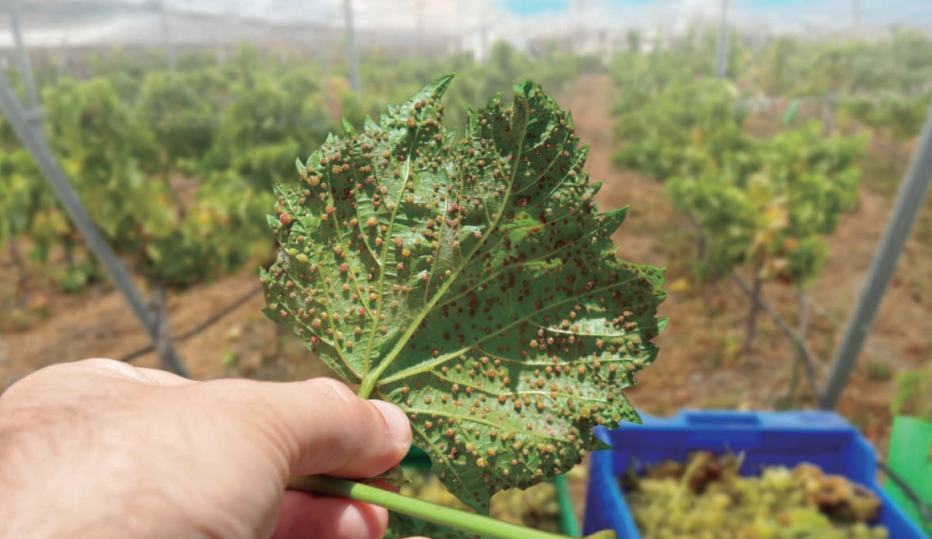Pioneering Platform for Climate Impact on Canary Vineyards

SANTA CRUZ DE TENERIFE, 11 Sept. (EUROPA PRESS) –
Introduction of ‘VidDATA’
The Technological Institute for Renewable Energies (ITER), under the Cabildo of Tenerife, has developed ‘VidDATA’, a pioneering platform designed to analyse climate evolution and its impact on viticulture in the Canary Islands.
Key Features
Among its functionalities are real-time climate consultation to plan activities according to weather forecasts, climate evolution analysis in cultivated areas, the generation of climate projections and agroclimatic indices, identification of optimal areas for vine cultivation across different scenarios, and simulation of vineyard production costs.
Support for the Wine Sector
For President Rosa Dávila, this new tool represents a commitment to strengthen and work closely with the wine sector, which is currently facing one of its toughest challenges.
“Our commitment is to secure and protect our crops and our identity. This is a step forward in adapting viticulture to climate change as we deal with uncontrollable weather situations and pests,” she stated in a press release.
Technical Specifications
Utilising high-resolution climate models developed by the GOTA group and executed on the TEIDE-HPC supercomputer, the tool will also provide specific data for the territory, allowing for agricultural planning tailored to each area and situation.
Innovative Solution for Viticulture
In a context where climate variability poses an increasing challenge for the wine sector, ‘VidDATA’ emerges as an innovative solution enabling grape growers, technicians, and industry experts to make data-driven decisions based on high-resolution climate data tailored to the unique circumstances of the Canary Islands, as highlighted by the corporation.
Future Applications
While the platform focuses on vine cultivation—an essential sector in the Canary Islands—its methodology could be applied to other crops in the future.
Project Funding and Collaboration
The project has a budget of €574,119.48 and has been developed in collaboration with the Interaction, ICT and Education (ITED) and Agro-Food Economics in the Canary Islands (ECOAGROCAN) groups from the University of La Laguna (ULL). This initiative is funded by the Ministry of Science and Innovation and the State Research Agency under the Collaborative R&D Projects 2019 framework.
Additionally, it has benefitted from the collaboration of the GOTA group, the University of La Laguna (ULL), and the Designations of Origin (DO) within the wine sector.
Impact of VidDATA
Juan José Martínez, Insular Councillor for Innovation at the Cabildo of Tenerife, stated, “VidDATA is a clear example of how science and technology can serve the territory and the primary sector.” He added, “We are committed to tools that strengthen the resilience of the wine sector against climate change, and this platform showcases the enormous potential of our institutions when they collaborate with the university and the agricultural sector.”
This tool marks a significant turning point in the management of viticulture in the Canary Islands, providing resources for decision-making based on scientific and technological data. Its ability to integrate climate information into vineyard planning will facilitate a more efficient and sustainable management of vineyards, assisting the sector in adapting to the challenges posed by climate change and ensuring the viability of viticulture in the archipelago.
VidDATA is underpinned by a robust and scalable technological architecture, designed to adapt to the needs of the wine sector and evolve in response to climate, political, or economic changes.
Data Collection and Analysis
The platform houses over 3.5 billion records of meteorological, climatic, and vineyard production data from seven distinct data sources, which are visualised through more than 60 interactive dashboards, facilitating user analysis and decision-making.
To enhance data accuracy, advanced interpolation methodologies are applied to adjust climate information across various periods and agricultural conditions.
Moreover, collaboration with the Designations of Origin (DO) of the wine sector has enabled the incorporation of detailed harvest traceability data, providing a vital dimension to directly relate the impact of climate variables with vineyard production.













